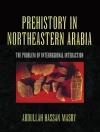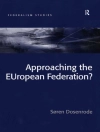Previous editions of this book have helped well over 100, 000 students and professionals write effective proposals for dissertations and grants. Covering all aspects of the proposal process, from the most basic questions about form and style to the task of seeking funding, Locke/Spirduso/Silverman’s Proposals That Work offers clear advice backed up with excellent examples. In the fifth edition, the authors have included a discussion of the effects of new technologies and the Internet on the proposal process, with URLs listed where appropriate. In addition, there are new sections covering alternative forms of proposals and dissertations and the role of academic rigor in research. As always, the authors have included a number of specimen proposals, two that are completely new to this edition, to help shed light on the important issues surrounding the writing of proposals. Clear, straightforward, and reader friendly, Proposals That Work is a must own for anyone considering writing a proposal for a thesis, a dissertation, or a grant.
Table des matières
Part I. Writing the Proposal
Chapter 1. The Function of the Proposal
Chapter 2. Doing the Right Thing: ‘The Habit of Truth’
Chapter 3. Developing the Thesis or Dissertation Proposal: Some Common Problems
Chapter 4. Content of the Proposal: Important Considerations
Chapter 5. Preparation of Proposals for Qualitative Research: Different Assumptions
Chapter 6. Proposals for Mixed Methods Research
Chapter 7. Style and Form in Writing the Proposal
Chapter 8. The Oral Presentation
Part II. Money for Research
Chapter 9. Money for Research: How to Ask for Help
Chapter 10. Preparation of the Grant Proposal
Part III. Specimen Proposals
Proposal 1. Experimental Study
Proposal 2. Qualitative Study
Proposal 3. Online Electronic Survey Study
Proposal 4. Funded Grant
A propos de l’auteur
Stephen J. Silverman is Professor of Education and Chair of the Department of Biobehavioral Sciences at Teachers College, Columbia University. He is a native of Philadelphia and holds a bachelor’s degree from Temple University, a master’s degree from Washington State University, and a doctoral degree from the University of Massachusetts at Amherst. His research focuses on teaching and learning in physical education and on methods for conducting research in field settings. He has authored numerous research articles and chapters, and is coauthor of a number of books. He has served as editor of two research journals, is an experienced research consultant, has directed graduate students, and has, for many years, taught classes in research methods, statistics, and measurement. He enjoys running, following politics, and aquatic sports, and lives with his wife, Patricia Moran, on the Upper West Side of Manhattan. His website is: http://www.tc.columbia.edu/faculty/ss928












